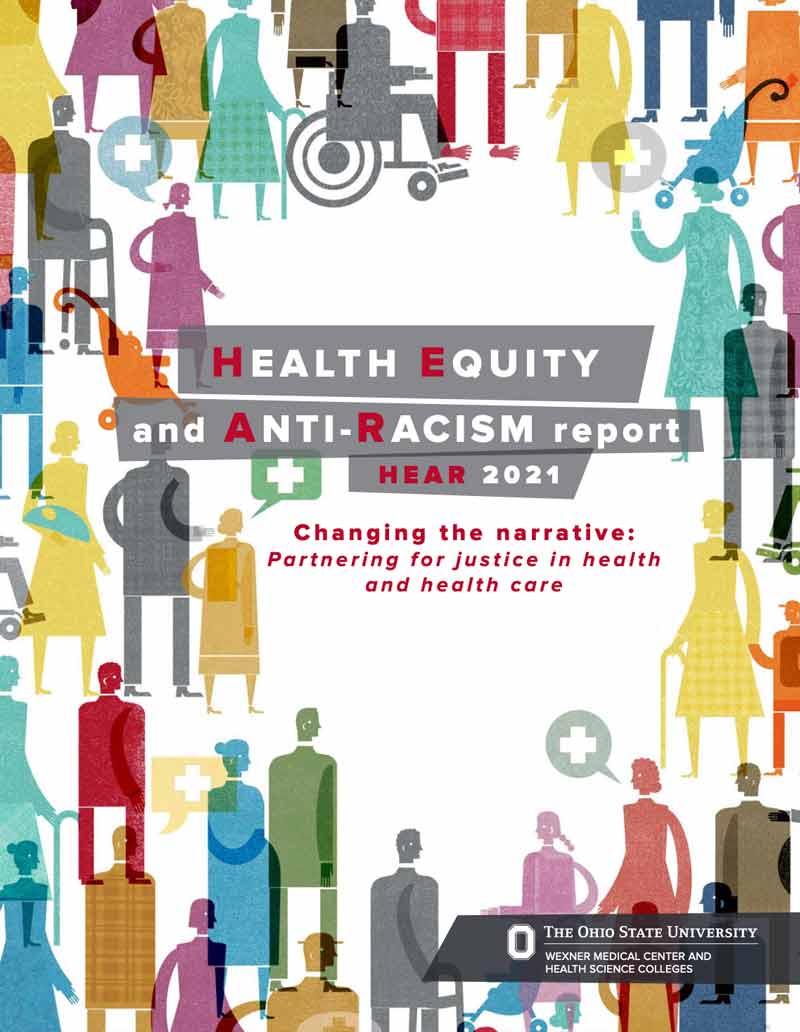STEPP Clinic: A lifeline for those with addiction — and their babies

For expectant parents, substance abuse disorders can further complicate pregnancies that may already be at risk based on other social determinants. To have pregnancies that produce healthy, full-term babies, these patients need specialized care to overcome addiction.
Through an innovative clinic called Substance Abuse Treatment, Education and Prevention Program (STEPP), Ohio State maternal-fetal medicine specialists are increasing the odds for those babies to live beyond their first birthday.
The clinic’s expert team includes a dedicated nurse, a social worker and a team of physicians led by Kara Rood, MD. They hold more than a decade of experience leading weekly sessions that provide personalized, high-risk obstetric care, treatment and counseling.
In partnership with central Ohio addiction treatment center Maryhaven, STEPP also facilitates group therapy sessions. Of the well over 100 patients now seen each year through STEPP, many believe the group therapy approach helped solidify their successful recovery.
One STEPP Clinic mother, Victoria, said she valued the clinic’s varied sources of support.
“You don’t have just one or two people to turn to — you have a whole support network to rely on. If you need someone to call up and talk to…they’re there. I couldn’t ask for a better support group, medically.”
Topics of weekly STEPP Clinic education sessions:
- smoking cessation
- goal setting
- labor and delivery
- breastfeeding
- maternal-infant health
- safe sleep
- family planning and reproductive health
- child development
- positive parenting
Expanding and replicating support systems
The clinic is now partially funded by the Ohio Department of Medicaid through its Care Innovation and Community Improvement Program (CICIP). And, in collaboration with Nationwide Children’s Hospital’s Neonatal Abstinence Syndrome follow-up clinic, STEPP Clinic was recently chosen as a top clinical excellence site to participate in the Maternal and Infant Network to Understand Outcomes Associated with Treatment for Opioid Use Disorder during Pregnancy (MAT-LINK). The network is a monitoring system through the Public Health Informatics Institute and the Centers for Disease Control and Prevention (CDC) to track maternal, infant and child health outcomes associated with opioid use disorder during pregnancy.
“The MAT-LINK selection illustrates STEPP’s longstanding, extensive experience in caring for pregnant women whose pregnancies are complicated by opioid use disorder,” says STEPP Clinic director Dr. Rood, a maternal-fetal medicine specialist. “Data from our 10 years of experience will be used to help direct evidence-based guidelines for best practices caring for this population.”
Most of the women who enter the STEPP program have opioid use disorder, and they participate in an addiction treatment program — either inpatient or outpatient, aligned with the Ohio State Wexner Medical Center or through outside programs — alongside the STEPP Clinic services.
The clinic also cares for pregnant patients with infectious diseases, such as hepatitis C, which are frequently associated with illicit drug use.
“In fall 2020, we began a specialized collaboration with Ohio State’s infectious disease experts for adequate treatment of hepatitis C in the postpartum period,” Dr. Rood says. “Since this disease is often associated with substance abuse, many of these individuals describe hepatitis C treatment as another door they can close along the road to recovery.”
The STEPP team has recently expanded programs to promote behavioral health (such as individual counseling) and to support healthy children long-term.
“At every visit, we assess postpartum depression/anxiety and drug cravings, and we address shaken baby syndrome and safe sleep,” says Kate Hinely, RN, a nurse dedicated to STEPP Clinic and the designer of its postpartum curriculum.
“We also cover breastfeeding, growth and development milestones, appropriate-age play, healthy emotional parenting and so much more. And for issues specific to babies with neonatal abstinence syndrome (NAS), we focus on some of those problems that arise in newborns who were exposed to opioid drugs in the womb. The curriculum is constantly evolving based on individual feedback.”
STEPP’s first graduate from the one-year postpartum program is a mother who began with the clinic at 39 weeks pregnant, while actively using illicit substances and having recently been incarcerated.
She delivered two days later, continued with STEPP’s postpartum group and now has custody of her child. She’s since completed peer support training and is enrolled at Columbus State Community College, working toward become a substance abuse counselor and expunging her felony.
“The support these individuals get from our team during the immediate postpartum period is when they truly bond to STEPP,” Dr. Rood says. “It’s in that moment and phase of their journey that they really understand how invested we are in them. We feel this has contributed to the success of our postpartum group, with over 80% of those who attended during pregnancy continuing to stay with us for the postpartum group.”
To support educational goals, STEPP features guest speakers from the Ohio Department of Developmental Disabilities, the Special Supplemental Nutrition Program for Women, Infants and Children (WIC) and other groups. STEPP also recently incorporated additional evening education sessions to cover addiction, medication-assisted therapy and NAS.
“The participants’ feedback has been very positive,” Hinely says. “They all say they feel very supported both as a mother and in their recovery.”
2020-2021 Health Equity and Anti-Racism (HEAR) report
Changing the narrative: Partnering for justice in health and health care
Download the full report to read all the stories





